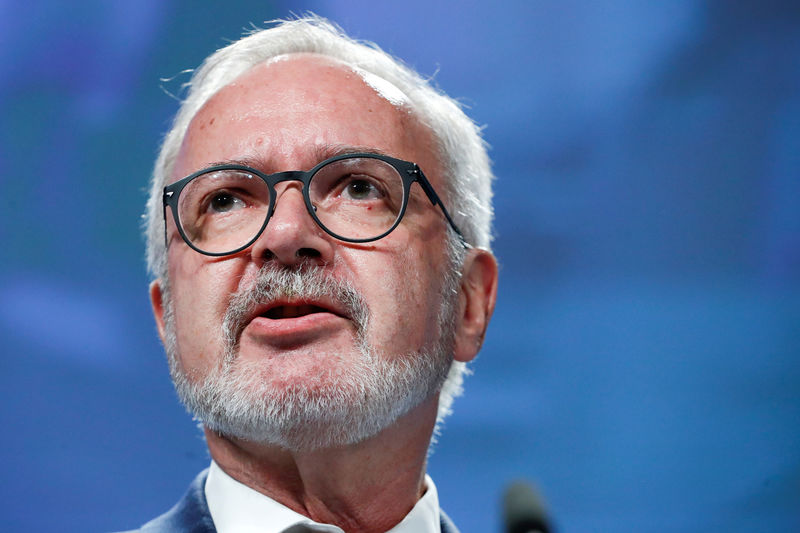By Francesco Guarascio
LUXEMBOURG (Reuters) - It is too early to say the European Investment Bank (EIB) has won its battle to end funding of fossil fuel projects, the bank's president said on Monday, after European Union finance ministers backed such a move on Friday.
Werner Hoyer said EU governments remained divided on the issue and a final decision was still to be made.
On Friday, EU finance ministers in an unprecedented move backed the EIB's call to phase out its funding of gas, oil and coal projects to help combat climate change.
The EIB has sought approval to end from 2021 its financing of fossil fuel projects, which has amounted to about 2 billion euros ($2.2 billion) a year since 2013 - mostly spent on gas infrastructure.
At Friday's meeting, discussions on climate finance were "very, very short," Hoyer told a news conference in Luxembourg. "Everybody is waiting for how things are going to move on at the board of directors of the EIB this week".
The board, composed of officials from the 28 EU governments, is due to meet on Thursday.
A decision on the EIB's funding of fossil fuels was expected last month, but was postponed due to divisions within the bloc as some countries, including Germany, Italy and Poland, want gas funding to continue.
Hoyer acknowledged some EU countries were cautious about the plan because they want to protect jobs and energy security. He said the bank would focus on helping regions most hit by the transition.
He described the decision by EU finance ministers as "very encouraging and motivating," but said the final decision was difficult to predict.
One possible compromise could be to extend the period during which some projects could be financed by the EIB after it stops funding fossil fuels, officials said.
The waiver could, for instance, be applied to cross-border gas pipelines, interconnectors and other energy projects the EU labels as priorities, they said.
Hoyer warned, however, that the bank was responsible to its investors. Putting money into fossil fuel projects that in a few years might be considered obsolete "makes no sense," he said.
Regardless of the decision on fossil fuels, the EIB wants to increase to half from about 28% the share of its lending to projects aimed at combating climate change, such as renewable energy.
That would equate to funding worth $1.1 trillion between 2021 and 2030, Hoyer said.

($1 = 0.9074 euros)